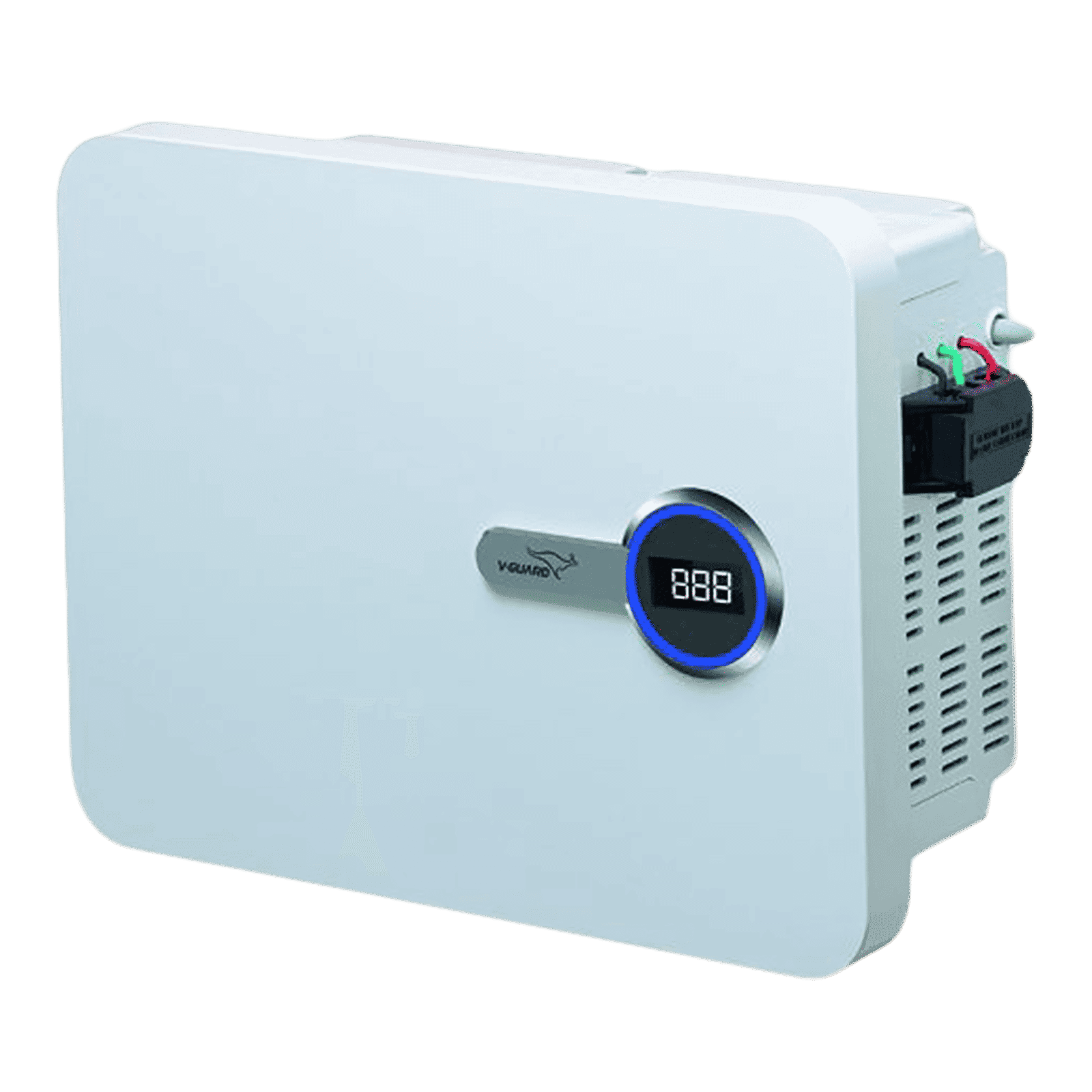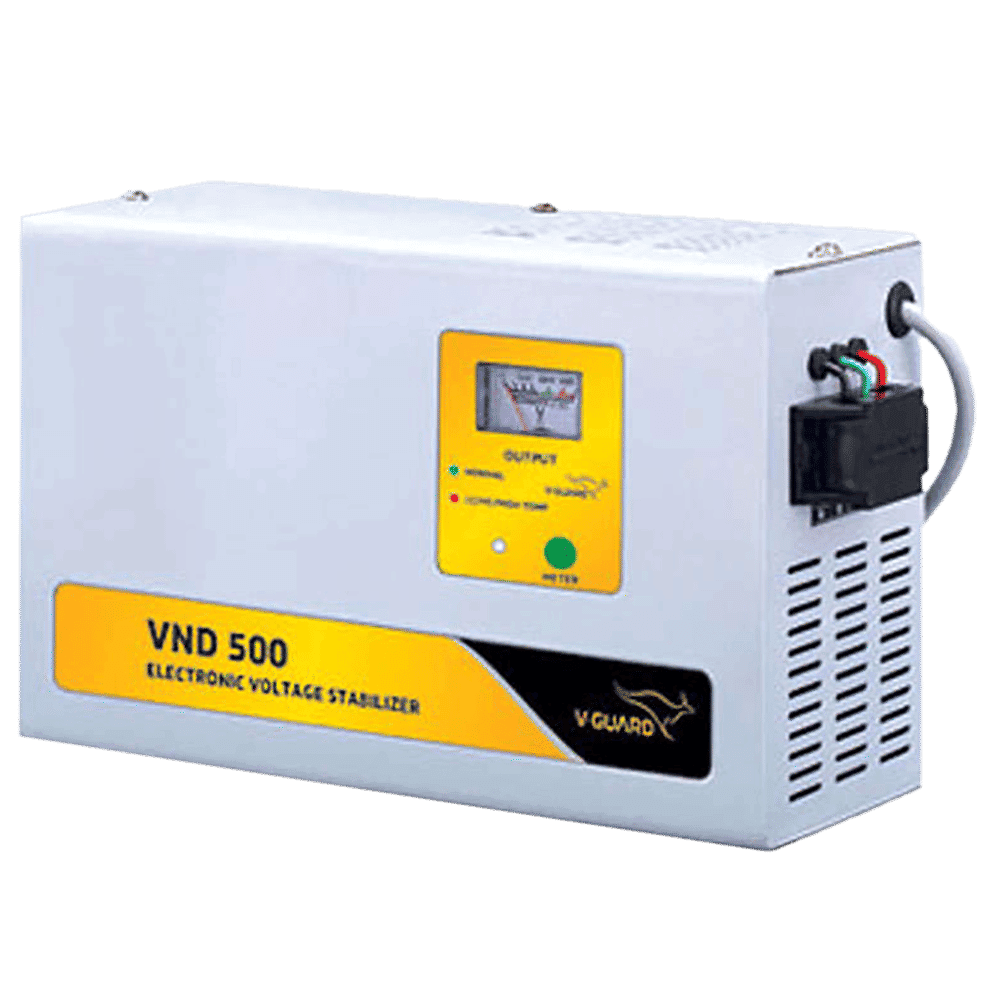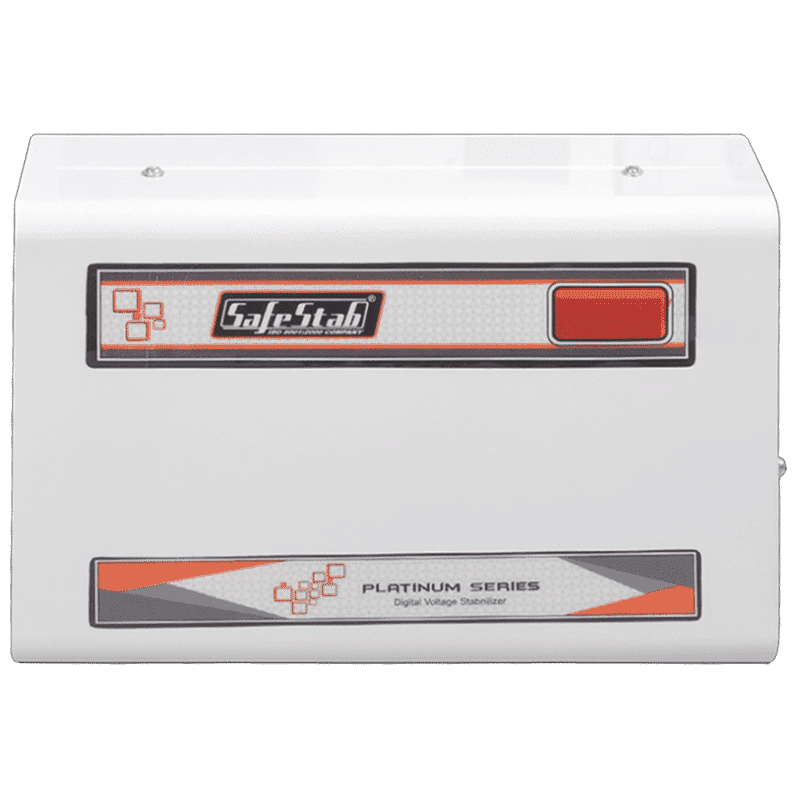-4a70efa4-8ca4-4701-a96b-ce16f00a5661.webp&w=3840&q=75)
Consumer Electronics
•04 min read

Buy V-Guard 12 Amps Voltage Stabilizer For 1.5T Air Conditioner (130 - 280 V, Latest IC Technology, VWI 400, White) online at best prices from Croma. Check product details, reviews & more. Shop now!
Imagine a hot summer day when your air conditioner suddenly stops working because of a power surge—frustrating, isn't it? This scenario underscores the need to protect your appliances from voltage fluctuations. In this post, we explain why stabilisers are essential for ACs, detailing how they regulate power and safeguard your unit from unpredictable surges and drops in voltage. By the end, you'll understand the role of an ac voltage stabiliser, learn about its benefits, and know if your specific AC needs this protection.
A voltage stabiliser is a device designed to maintain a steady power supply to your appliances. It works by regulating the voltage that reaches your air conditioner, ensuring that the internal components are protected against fluctuations. Essentially, the stabiliser adjusts the voltage when it exceeds or drops below a certain threshold, thus counteracting disruptions in power supply.
Air conditioners, like many household appliances, are vulnerable to voltage variations. These fluctuations can arise due to unpredictable power surges or drops in your area. An ac voltage stabiliser serves as a protective barrier, shielding your AC unit from these harmful variations. This regulation not only enhances performance but also extends the lifespan of your appliance. In effect, stabilisers act as unsung heroes that save you from costly repairs and the stress of unexpected breakdowns.
Voltage fluctuations can cause a variety of issues with your air conditioner. Inconsistent power supply can lead to erratic compressor performance, overheating, or even permanent damage to the unit's electrical components. When you use a stabiliser for air conditioning units, it ensures that the AC receives a consistent voltage, thereby reducing strain on its mechanisms. This regulated flow of power allows the appliance to function efficiently and minimizes the risk of malfunction.
There are several benefits to using a stabiliser with your AC. Firstly, it helps in improving energy efficiency by ensuring that the appliance does not draw excess power during voltage surges. Secondly, with a regulated voltage supply, your air conditioner remains protected against sudden power surges which can lead to significant damage. Apart from safeguarding the internal components, the stabiliser also prevents the deterioration of performance over time, ensuring that your AC provides optimal cooling even during prolonged periods of use.

Buy V-Guard 15 Amps Voltage Stabilizer For 2T Air Conditioner (150 - 285 V, Digital Display, VND 500, Grey) online at best prices from Croma. Check product details, reviews & more. Shop now!
Insight Corner: "Did You Know?"
Voltage fluctuations can shorten the lifespan of your air conditioner. A stabiliser acts as a shield, ensuring your AC remains safe and efficient even during erratic power supply.
The function of a stabiliser in ACs is both technical and preventative. It constantly monitors the incoming voltage and automatically adjusts it to fall within a safe range. This regulation involves fine-tuning the voltage in real-time to compensate for irregularities caused by power surges or drops. Featuring surge protection and an automatic cutoff mechanism, the stabiliser quickly disconnects the appliance if the voltage goes beyond safe limits, thereby protecting the delicate internal components.
Power surges are a frequent occurrence in many regions, especially during seasonal intensity changes. When a surge occurs, the excess energy can easily overwhelm the circuits of your AC, leading to severe damage. With an ac voltage stabiliser in place, the risks posed by these sudden increases in power are significantly reduced. For instance, a sudden spike in voltage that could potentially harm your cooling system is moderated by the stabiliser’s quick response, preserving both the appliance’s performance and longevity.
The necessity of a stabiliser for an AC largely depends on the type of unit and the stability of the local power supply. Many modern inverter ACs come equipped with built-in stabilisers, catering to most voltage fluctuations. However, not all air conditioning units have this feature. Traditional split ACs, for example, benefit greatly from external stabilisers since they lack inherent voltage regulation. Evaluating your local power conditions and the specifications of your AC can help you decide whether additional protection is needed.
If your appliance does require an external stabiliser, selecting the right one is critical. The choice should be based on the capacity and voltage range suited to your particular model of air conditioner. Using a stabiliser that matches the specifications of your AC ensures effective protection and maintains the appliance’s performance. Moreover, verifying whether your unit already has built-in stabiliser support can save you from unnecessary expenses. In areas known for unstable voltage, even inverter ACs might benefit from the extra assurance provided by an external unit.

Buy SafeStab 11 Amps Voltage Stabilizer For 1.5T Air Conditioner (150 - 270 V, Digital Display, VST400D, White) online at best prices from Croma. Check product details, reviews & more. Shop now!
Without a stabiliser, your AC is exposed to voltage fluctuations that can damage internal components, reduce efficiency, and lead to costly repairs.
It depends on the type of AC. While inverter ACs often have built-in stabilisers, other types may require external stabilisers to ensure protection against voltage fluctuations.
The primary purpose of a stabiliser is to regulate voltage and shield appliances like ACs from power surges, voltage drops, and fluctuations.
Most inverter ACs come with built-in stabilisers, but in areas with severe voltage fluctuations, an external stabiliser may still be recommended.
Yes, but only if the AC has a built-in stabiliser or operates in areas with stable voltage supply. Otherwise, using an external stabiliser is highly advisable.
In summary, stabilisers play a crucial role in protecting air conditioners from the adverse effects of voltage fluctuations. They help maintain a consistent power supply, thereby ensuring optimal performance, energy efficiency, and longevity of your appliance. Whether you have an inverter AC with built-in protection or a split AC that requires an external stabiliser, understanding the importance of voltage regulation can empower you to make informed decisions. With a focus on reliability and reward through platforms like Tata Neu, customers can also enjoy NeuCoins benefits with each transaction. Additionally, services like Express Delivery, expert guidance, and ZipCare support create a seamless and rewarding shopping experience, allowing you to comfortably safeguard your investments and enjoy worry-free cooling during the heat of summer.